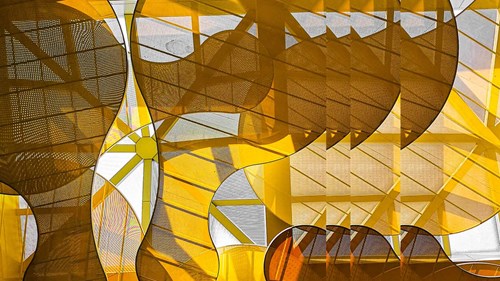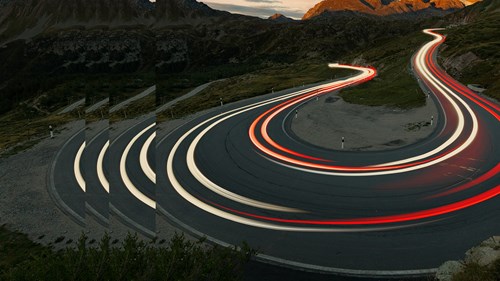The Munich football arena as a beacon for equal rights
All of Germany is excited to see on Wednesday evening how the German national football team performs against Hungary. But not only that: at least as much as sports issues, the nation is debating whether Munich’s football arena should be lit up in rainbow colours as a sign of equality and thus (indirectly) against the Hungarian government’s current homophobic law.
On Tuesday morning, UEFA turned down a request from the Munich City Council to light up the arena. With the usual justification: UEFA is politically neutral, but Munich’s project is an unlawful political statement against the Hungarian government. UEFA has offered the City to light the arena in rainbow colours either on 28 June, Christopher Street Day, or from 3 to 9 July. Other stadium operators in Cologne, Berlin and Frankfurt would like to take over and light up their arenas in the rainbow colours during the match on Wednesday evening. The umbrella organisation of the Christopher Street Days, with partners such as Amnesty International, will provide up to 11,000 rainbow flags to fans inside the arena.
The question is thus whether such a ban by UEFA is legally tenable and what consequences Munich would face if it decided to light up the Arena in rainbow colours tonight.
UEFA’s legal relations with the City of Munich are governed by a detailed organiser agreement. Such agreements are concluded for World Cups and European Championships and generally give the association some form of tenant status for the duration of the sporting event. In any event, UEFA is given the right to organise and run the international matches at the stadium and can thus decide on the specific technical conditions at the stadium and thus also on the lighting. If the City of Munich wants to decide on the lighting itself, it has to consult UEFA. What makes this case special is that the combination of colours the City wants to use is also a symbol of equality, tolerance and openness of society. The illumination thus becomes a type of expression of opinion. Because of the great visibility of the stadium and the European Championship as a stage in the truest sense of the word, this expression of opinion is particularly powerful.
Typically, the organiser agreements contain detailed rules on the reciprocal rights and obligations during the international matches. UEFA is making use of its monopoly position as the only continental federation of football in Europe in that it is seeking to dictate as far as possible the content of the agreement with the City of Munich. To retain control over the commercialisation of their sporting event and to ensure it is attractive to sponsors, organiser agreements with the major sports federations usually specify that the right to issue opinions, especially on political or religious matters, is reserved.
However, the first problem arises in classifying an action as “political”. First of all, it seems obvious that the City of Munich wishes to use the match against Hungary as an opportunity to send a clear signal opposing the Hungarian government’s new law. If there is a link to a current law, this suggests a political connotation. On the other hand, rainbow colours are a symbol of values such as equality, humanity and an open and tolerant society. The link to universal human and fundamental rights, which apply regardless of different political opinions, could indicate that the political component is clearly pushed into the background and is not covered by a corresponding requirement to seek permission. It seems doubtful, however, that an organiser city will have a court review the permission requirement, meaning that UEFA ultimately has the power to interpret when a political opinion exists.
If Munich were to overrule UEFA’s ban, what sanctions could UEFA impose on the city?
Sports federations’ organiser agreements usually specify penalties for breaches by the organiser cities. In addition to claims for damages, UEFA has the option of depriving Munich of other international matches in the European Championship. However, UEFA cannot penalise the German national team for the arena lighting, since the team is not a contracting party of UEFA. Likewise, UEFA is unlikely to reopen investigations into players such as Manuel Neuer when they wear rainbow-coloured clothing, such as the captain’s armband. UEFA seems to acknowledge players’ individual freedom of expression in this case, while at the same time demanding complete political neutrality from its organiser cities, and thus from the public authorities.
Finally, Munich will also consider whether UEFA would actually decide to penalise the city for a breach, given the considerable public criticism of its decision.
However, UEFA will not be able to stop many other German stadiums and buildings being lit up in rainbow colours and thousands of German fans in the Munich Arena being given rainbow flags to wave.
Noerr’s sports law team is closely following the further events regarding this European Championship match as well as the further course of the tournament and will be happy to answer any legal questions to those involved.
Well
informed
Subscribe to our newsletter now to stay up to date on the latest developments.
Subscribe now









